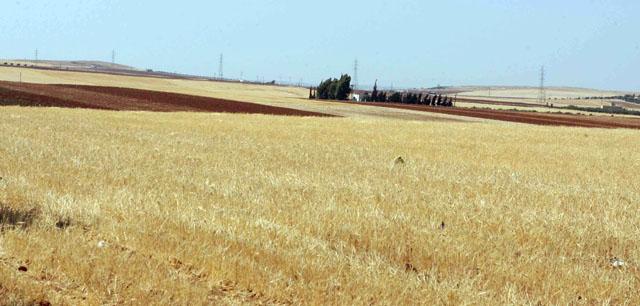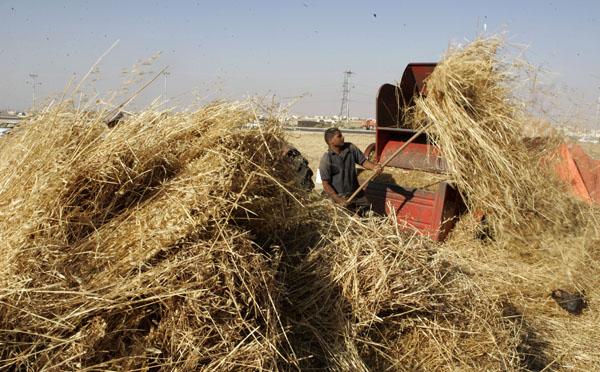You are here
Wheat production expected to increase twofold this year
By Hana Namrouqa - Mar 24,2015 - Last updated at Mar 24,2015

AMMAN — Wheat production is expected to double this year compared to the crop’s yield in 2014 due to abundant rain in winter, an Agriculture Ministry official said on Tuesday.
The country produced 12,000 tonnes of wheat last year, Agriculture Ministry Spokesperson Nimer Haddadin told The Jordan Times, noting that excellent rain during the wet season and last week’s rainfall will lead to an increase in wheat production this year.
“Production of wheat is expected to range from 20,000 to 25,000 tonnes this year. In addition, the land area planted with wheat is expected to increase,” Haddadin added.
A total of 600,000 dunums of lands are planted with wheat every year, according to the spokesperson, who noted that the country’s wheat production meets its needs for only 10 days.
According to the Jordan Meteorological Department, the performance of the wet season was excellent and the majority of the governorates surpassed their long-term annual average of rainfall.
The northern governorates received 99 per cent of their long-term annual average of rainfall; western parts of the central region received 104 per cent; while eastern parts of the central region received 119 per cent.
Western parts of the southern region received 89 per cent and the southern parts of southern region received 114 per cent, while the eastern region received 101 per cent.
The Jordan Valley also received abundant rain as its northern areas received 110 per cent, the central areas 108 per cent and the southern parts received 134 per cent of their long-term annual average of rainfall.
“The country’s wheat imports used to be around 900,000 tonnes annually, but the figure has increased to 1 million tonnes due to population growth in light of the refugee influx,” Haddadin said.
Jordan imports its needs of wheat from several countries including Ukraine, Kazakhstan, Russia, Romania and the United States.
“The government seeks to encourage farmers to plant wheat to reduce imports. The ministry provides farmers with improved seeds at preferential prices and buys their production above the international price,” Haddadin added.
The ministry’s centres for distributing seeds and buying farmers’ wheat production are spread across the governorates, he said.
Farmers grow wheat across the country, but the crop is mainly planted in Irbid and the Houran plains in the north; Madaba and Husban in the central region; and Arrabeh in Karak Governorate in the south, according to the official.
Related Articles
AMMAN — Rainfall during this time of the year is good news for farmers of wheat and barley, an official at the Agriculture Ministry said on
Farmers in Irbid are optimistic about the 2015 harvest thanks to a good rain season.
The Ministry of Agriculture on Thursday warned that the recent rainfall might increase chances of wheat crops being infected with wheat leaf rust, a fungal disease that affects wheat primarily among other grains.














